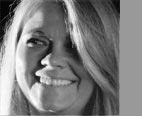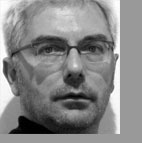|
 "Andreas, as a performer, how do you feel after you finish a performance, when the sound, the actual sound of your voice has ceased and you know that particular performance can never be duplicated exactly? Of course, it is different now that we have the capacity to record, but I am presently writing a novel about Venice in the time of Vivaldi and I am trying to imagine a singer or violinist in a Vivaldi opera, who knows she/he has sung or played something miraculous, but also knows (in 1715) that no one will ever hear that particular work of art again ... what desperate longing she/he must have experienced." "Andreas, as a performer, how do you feel after you finish a performance, when the sound, the actual sound of your voice has ceased and you know that particular performance can never be duplicated exactly? Of course, it is different now that we have the capacity to record, but I am presently writing a novel about Venice in the time of Vivaldi and I am trying to imagine a singer or violinist in a Vivaldi opera, who knows she/he has sung or played something miraculous, but also knows (in 1715) that no one will ever hear that particular work of art again ... what desperate longing she/he must have experienced."
|
|
 "To start, I first have some thoughts about the period. It is, of course, a coincidence that based in my hometown of Basel, Switzerland is the first and probably the most important school for what is called 'Old Music' (meaning the pre-classical periods). It goes without saying that studying the proper sources before attempting to sing baroque music as with any project you undertake is essential. BUT, I was very often disappointed by the actual performances of these 'baroquists' for two reasons: First, as far as baroque instruments go, they can be exactly reproduced today or one can even still buy the 'original instruments' (e.g. Stradivari violins) whereas the original singers of that time are all gone. Permanently … thus hampering considerably the study of original singers. Secondly, most of the time, these modern day baroque musicians and performers are so occupied with the rendition of the proper ornamentation that the original musical line is completely buried which does not properly serve bringing this music to life. If one studies the visual arts of this period, one can easily see that never ever before and never ever after in history has art been so generous and so daring in composition so as to make the two dimensional literally explode. Therefore, in comparison with a baroque painting, I cannot believe that this cutsie-curlie way of performing the music of the same timespan can somehow be correct. "To start, I first have some thoughts about the period. It is, of course, a coincidence that based in my hometown of Basel, Switzerland is the first and probably the most important school for what is called 'Old Music' (meaning the pre-classical periods). It goes without saying that studying the proper sources before attempting to sing baroque music as with any project you undertake is essential. BUT, I was very often disappointed by the actual performances of these 'baroquists' for two reasons: First, as far as baroque instruments go, they can be exactly reproduced today or one can even still buy the 'original instruments' (e.g. Stradivari violins) whereas the original singers of that time are all gone. Permanently … thus hampering considerably the study of original singers. Secondly, most of the time, these modern day baroque musicians and performers are so occupied with the rendition of the proper ornamentation that the original musical line is completely buried which does not properly serve bringing this music to life. If one studies the visual arts of this period, one can easily see that never ever before and never ever after in history has art been so generous and so daring in composition so as to make the two dimensional literally explode. Therefore, in comparison with a baroque painting, I cannot believe that this cutsie-curlie way of performing the music of the same timespan can somehow be correct.
As far as the live singing/performing is concerned, I don't think much has changed over the centuries. I have had the chance to be invited to sing (as a classical concert & opera singer without a microphone) in traditionally built horseshoe shaped opera houses (Teatro Verdi in Trieste, Italy and at Palais Garnier of the National Opera of Paris, France) and I have also sung in Greek and Roman roofless amphitheatres (Herodes Atticus at the foot of the Acropolis in Athens, Greece in front of over 6,000 spectators [see picture below] and in Orange, France before an audience of approximately 16,000 people): it remains a miracle and a mystery to me that a properly trained human voice can fill spaces of such dimensions, but the reality of this simple fact remains.
Returning to the original question, it goes without saying that the capacity to record a human voice has completely changed our perception of vocal music, BUT a live performance can never be exactly duplicated nor exactly repeated. To record a 'live concert' invariably results in a tin-canned souvenir-soup of the actual happening. One of the last remaining real luxuries in our lives is to be physically present in a certain place at a certain time in order to witness and experience a unique and a once in a life time live performance. This absolute and indivisable connection of time and space makes it an exceptional event. Which, of course, is only of interest if the performance is of high quality.
Each and every time I sing, I perform as if it were for the very last time, the last chance to be in front of an audience and do what I love to do. One never knows what tomorrow will bring, so one must make the most of every opportunity life presents. Another major factor for me in giving my all to each and every performance: if that moment in time is not exceptional for me, how on earth can it be for the spectator?
'Routine' is not an element that should exist in the working process of the performing arts. Each morning, when I start doing my scales, is a totally new beginning. Every tone and sound has to be produced from scratch, every single time - - it can not be magically 're-produced'. It takes good old fashioned hard work, dedication and persistence. Singing, also, involves an excessive amount of muscular work, therefore repetition and careful use of the muscles involved are an essential element of the working procedure. Returning to work after days/weeks off and/or after an illness is dreadfully unpleasant.
One should also never forget that singing/performing is a semi-creativity: one shares the responsability with the composer/lyricist.
After each performance, I do feel like having given birth to something new, something miraculous and at the same time I feel as if something has died in me, as I can never exactly duplicate that special once in a life time moment."
|
|
|
|
|
|
|
|
|
|
|
|
|
Andreas Jaeggi as Orpheus in Chr. W. Gluck's "Orphee and Euridice"
with the English Bach Festival at the Herodes Atticus Amphitheatre at the foot of the Acropolis in Athens (Greece)
|
|
Annasue McCleave Wilson, author of the novel "Untune the Sky"
Annasue McCleave Wilson's photo by Trinidad MacAuliffe
|
|
|